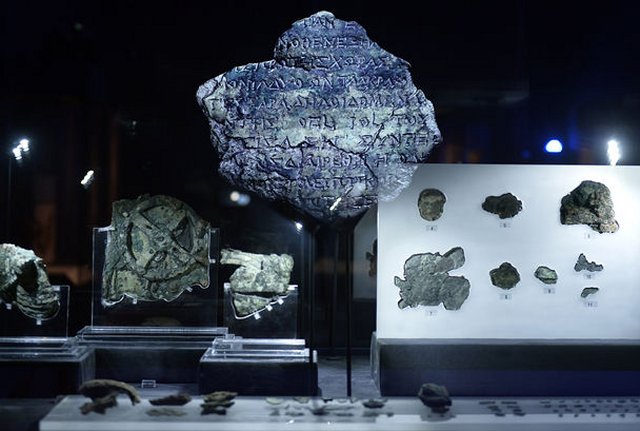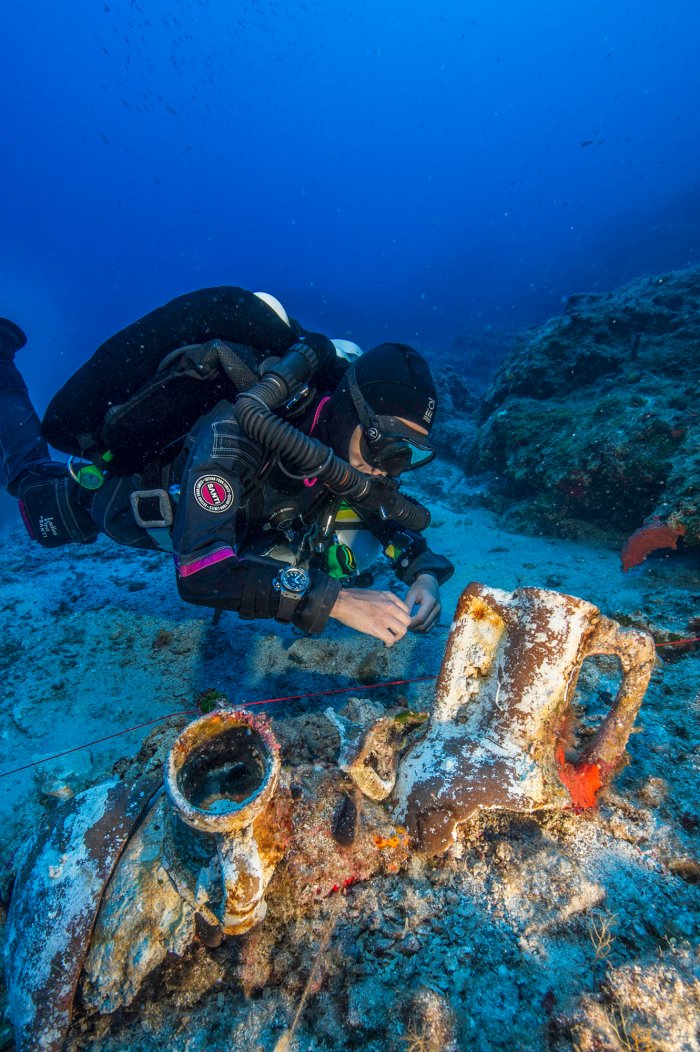MessageToEagle.com – The Antikythera shipwreck is today most famous for the amazing 2,000-year-old computer that ‘saw onto future’.
The ship resting underwater near the small island of Antikythera, 25 miles northwest of Crete has been of great interest to archaeologists. So far, more than 50 spectacular artifacts have been recovered from the ancient shipwreck resting under the ocean.

Earlier this year, divers came across an ancient torpedo-shaped cylinder. According to scientists this very heavy, metal cylinder offers new insights into the maritime warfare of ancient times.

Now, underwater archaeologists have made a new remarkable discovery. An international group of archaeologists led by the Woods Hole Oceanographic Institution and the Hellenic Ministry of Culture and Sports has discovered a 2,050-year-old human skeleton in good condition. It is astonishing the skeleton is still preserved after spending so many years underwater.
See also:
Enigmatic Antikythera Mechanism Still Full Of Secrets
Ancient Metal Torpedo-Shaped Cylinder Discovered On 2,000-Year-Old Antikythera Shipwreck
“Against all odds, the bones survived over 2,000 years at the bottom of the sea and they appear to be in fairly good condition, which is incredible,” said DNA expert Dr Hannes Schroeder.
Photo by Brett Seymour © whoi.edu
A human skull, including jaw and teeth, as well as the bones of arms, legs and ribs have been excavated while other portions of the skeleton remain embedded in the seafloor.
How many more ancient treasures are still resting under the ocean awaiting our discovery?
MessageToEagle.com







